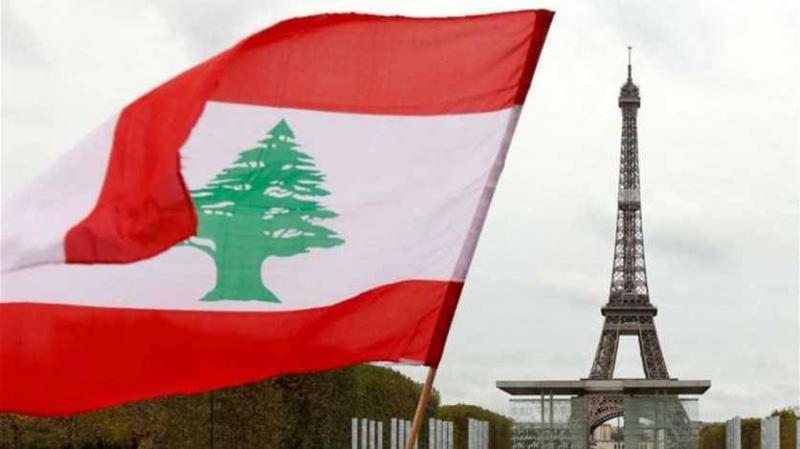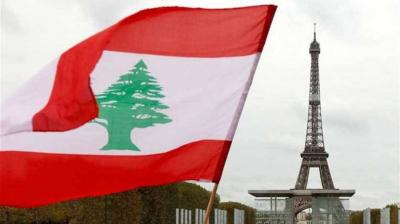Paris is preparing to resume its movement in Lebanon in a new attempt to resolve the presidential election stalemate. It has decided to send former French Foreign Minister Jean-Yves Le Drian to Beirut next Wednesday on a fact-finding mission to gauge the willingness of the parties involved in the election to abandon the exchange of conditions that hinder the presidential election process. The election has been stalled for a second year in favor of reaching a consensus on a candidate who can restore order to constitutional institutions and put Lebanon on a path to recovery.
Sources from the Lebanese political scene informed "Asharq Al-Awsat" that the French ambassador to Lebanon, Hervé Magro, has started contacting key political leaders to prepare a list of names for meetings that Le Drian will hold, beginning with Speaker of the Parliament Nabih Berri. The political sources noted that Le Drian's mission will not be limited to reviving the presidential election, although he does not intend to endorse a specific candidate. He aims to gauge the sentiment of influential voters to confirm their readiness to break the deadlock surrounding the presidential election.
It has been revealed that he is coming to Beirut this time without any pre-prepared ideas, although he has not dismissed the need to seek a candidate outside of existing political alignments. His visit to Beirut is intended to reaffirm the French presence in the political scene, in line with international and Arab calls for Lebanon to avoid being drawn into the conflict between Hamas and Israel, and to emphasize the necessity of maintaining the current ceasefire, hoping that it can be extended to allow for the exchange of new batches of prisoners and detainees, potentially prolonging the ceasefire.
Although the French ambassador has left the scheduling of Le Drian's meetings to him, merely arranging appointments with the relevant Lebanese leaders, the extension of the ceasefire in Gaza is expected to have implications for southern Lebanon, given the interconnection between the fronts. Consequently, any disruption in Gaza is likely to affect Lebanon, as Hezbollah views developments in the south as a support for Gaza, aimed at alleviating the Israeli military pressure targeting it.
Thus, the extension of the ceasefire in Gaza rests largely with the United States, which also applies significantly to French President Emmanuel Macron, who has been criticized for his hasty determination of his stance before being compelled, according to sources within the "Shiite duo," to reconsider his unlimited tilt towards Israel.
The sources believe that Le Drian does not bring any new developments to Lebanon and that his actions remain within the scope of exploring positions, perhaps seeking to revive the French role, represented recently by Paris's launch of a new initiative to extract the presidential election from its current deadlock and assess the parties' readiness to regroup with a new perspective.
They also noted the need to cleanse Franco-Lebanese relations of the scars left from Macron's pro-Israel stance during the conflict with Hamas. Paris is likely aware of the necessity to bridge the political gap created by Macron's initial reaction to Hamas's incursion into Israeli settlements and the positions he expressed during his visit to Tel Aviv, specifically to show solidarity.
The question remains: Will Le Drian's visit to Beirut be coordinated with the member states of the Quintet Committee, especially since he has not ceased communication with the United States, Egypt, Saudi Arabia, and Qatar, which is reportedly considering sending a team concerned with the Lebanese file to Beirut for a fact-finding mission, or is Lebanon currently entering a new phase different from the situation before the outbreak of war between Hamas and Israel?
Some argue that Le Drian's trip to Beirut is mainly to survey opinions to confirm that the possibility of extending the humanitarian ceasefire between Hamas and Israel will not impact the Lebanese arena in terms of continuing to postpone the presidential election, while political sources affirm that what matters to Paris at present is to reinstate its role in Lebanon, possibly reviving its faltering initiative—not only due to disagreements among the Lebanese but also because the French team assigned to the Lebanese file has struggled for coherence in its proposals. There has been an overabundance of diverging views that emerged publicly in reaction to the first version of the French initiative, which initially adopted the candidacy of Sleiman Frangieh for the presidency before Paris stepped back, appointing Macron to assign Le Drian with a mission to revive and solidify the initiative.




